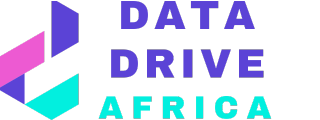Today, we have the pleasure of interviewing Ahmed Mohamed, a talented Data Scientist with a passion for unraveling hidden patterns and driving data-backed innovations. Ahmed currently works at a leading tech research institute, where he spearheads advanced machine learning projects. Let’s delve into his journey and learn from his experiences.
Q1: Can you introduce yourself and tell us about your current role in the data field?
Ahmed: Thank you for having me! I’m Ahmed Mohamed, and I’m a Data Scientist at DEF Tech Research Institute. In my role, I leverage machine learning algorithms to analyze large datasets and develop predictive models for cutting-edge research projects.
Q2: How did you get started in the data field, and what motivated you to pursue this career path?
Ahmed: My journey into the data field began during my undergraduate studies in Biotechnology, where I first encountered data analysis and machine learning. The ability to extract valuable insights from vast amounts of data fascinated me, and I knew this was the path I wanted to pursue to make a meaningful impact through data-driven research.
Q3: Did you study a data-related field in university, or are you self-taught? How did your educational background influence your journey?
Ahmed: I pursued a Bachelor’s degree in Biotechnology, which provided me with a solid foundation in programming and data structures. However, to become a proficient data scientist, I pursued postgraduate studies with a focus on machine learning and data analysis. Additionally, I engaged in self-learning through online courses and research papers to stay at the forefront of the field.
Q4: Can you walk us through your career journey, from your first data-related job to your current position?
Ahmed: After completing my studies, I joined a data consulting firm as a junior data analyst, where I honed my skills in data cleaning and visualization. This experience paved the way for my transition to a Data Scientist position at DEF Tech Research Institute. Here, I’ve been fortunate to work on groundbreaking projects involving natural language processing and computer vision.
Q5: What were the key milestones or turning points in your career that helped you progress?
Ahmed: Winning a Kaggle competition early in my career provided a significant turning point for me. It not only bolstered my confidence but also brought me recognition within the data science community. Additionally, publishing research papers in reputed conferences further solidified my position as a data scientist with expertise in specialized domains.
Q6: What are the primary technical skills and programming languages you use regularly in your work?
Ahmed: Python is my go-to programming language for data science tasks, and I frequently use libraries like TensorFlow and PyTorch for machine learning and deep learning projects. Additionally, proficiency in SQL is essential for querying and accessing data efficiently.
Q7: Could you share some of the most interesting data projects you’ve worked on and the impact they had?
Ahmed: One of the most exciting projects I worked on involved using AI and computer vision to assist doctors in diagnosing diseases from medical images. Our models achieved high accuracy in early disease detection, potentially saving lives and reducing healthcare costs.
Q8: How do you stay updated with the latest trends and advancements in the data field?
Ahmed: Staying updated in the data field is vital, given the rapid pace of advancements. I follow the latest research papers, attend data science conferences, and actively participate in AI and machine learning communities. Engaging in collaborative research projects with peers also helps me stay on the cutting edge.
Q9: How do you address ethical challenges related to data privacy, bias, and fairness in your work?
Ahmed: Ethical considerations are crucial in data science, particularly when dealing with sensitive data. We anonymize and aggregate data to protect individual privacy and take measures to mitigate any bias in our models. Regular audits and adherence to ethical guidelines ensure the fairness and accountability of our work.
Q10: Where do you see the data field heading in the next few years, and what skills will be most important for professionals to thrive?
Ahmed: In the coming years, data science will continue to shape the future of AI and automation across industries. Skills in deep learning, reinforcement learning, and AI ethics will be essential for professionals to thrive. Additionally, the ability to communicate complex findings effectively to diverse audiences will become increasingly valuable.
Subscribe to our email newsletter to get the latest posts delivered right to your email.


